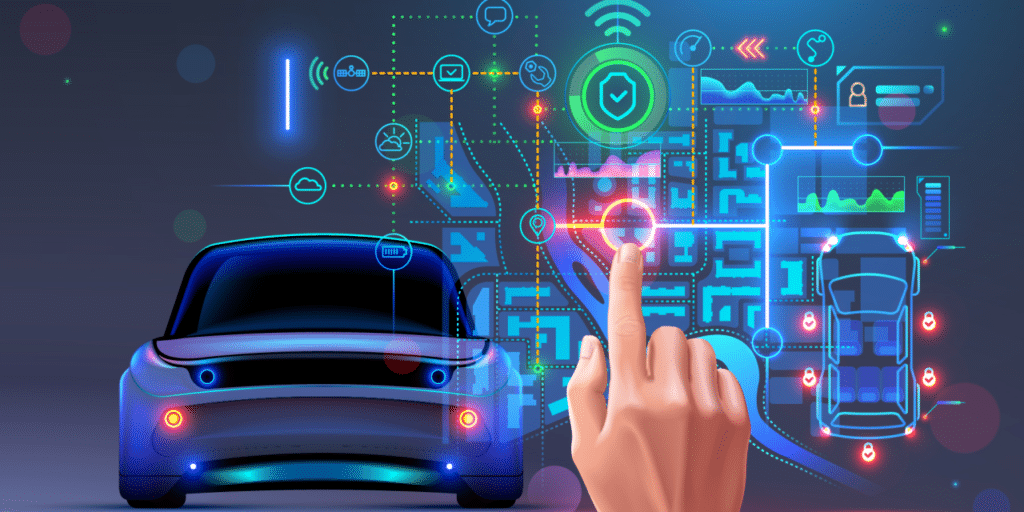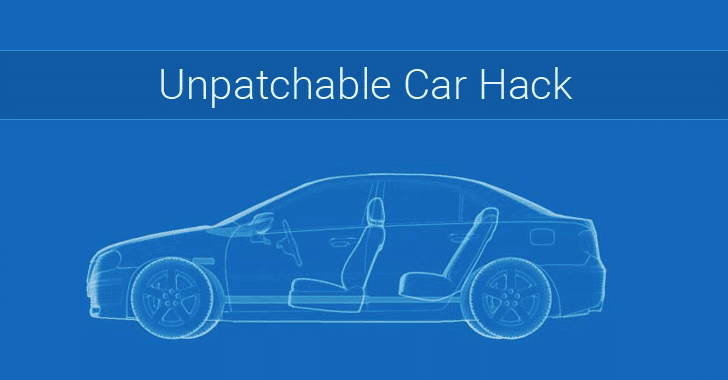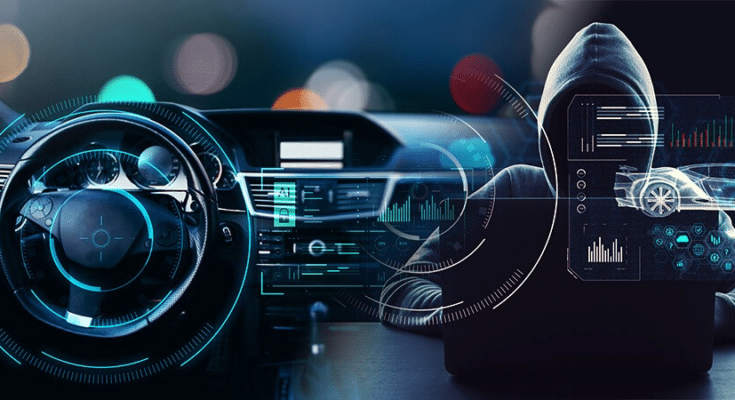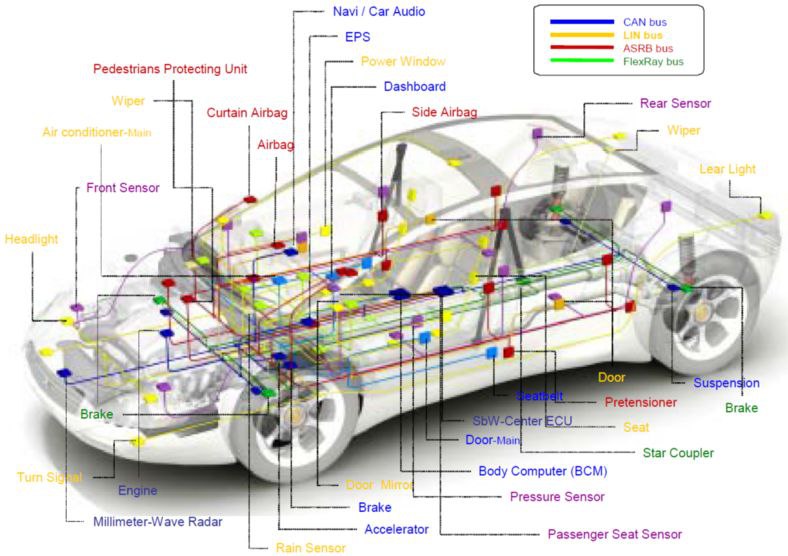Introduction to Cybersecurity in the Automotive Sector
The automotive landscape has dramatically shifted towards a more connected and digital frontier. With this transformation, vehicle systems are subject to cyber threats that can have catastrophic ramifications. Automobile sector cybersecurity has become an industry priority, unfolding as a complex tapestry of challenges and solutions. At the forefront of this secure vehicular evolution is the dedication of companies that are committed to protecting against cyber threats through innovation and expertise. As modern vehicles metamorphose into mobile computing platforms, the risks associated with data breaches, privacy invasion, and operational interference rise exponentially. The approach to tackling these threats is multi-faceted, involving state-of-the-art technologies, industry-wide collaboration, and stringent adherence to regulations.
Key Takeaways:
- The rise of connected and autonomous vehicles presents particular cybersecurity challenges for the automobile sector.
- Implementing robust cybersecurity standards and regulations is essential for safeguarding the industry.
- Collaboration between manufacturers, tech companies, and cybersecurity experts is vital for developing effective defense mechanisms.
- Educational initiatives are crucial for raising awareness about the importance of cyber hygiene among industry professionals and consumers.
Assessing the Threat Landscape

The automotive industry’s growing reliance on Internet of Things (IoT) devices has introduced a fresh wave of cyber threats. These range from ransomware assaults capable of immobilizing vehicle fleets to espionage tactics compromising drivers’ data, reshaping the landscape of cyber risks into a progressively daunting scenario. Recognizing and comprehending these hazards has become imperative for industry experts and car owners. High-profile incidents like the Jeep Cherokee hack underscore the vulnerability of even basic vehicle controls, underscoring the urgency for heightened security protocols.
The efforts of Fortinet China in cybersecurity exemplify strides to address these challenges. Their tailored solutions aim to bolster defenses, safeguarding against various cyber threats confronting the automotive sector. Case studies, like those compiled by cybersecurity thought leaders, shed light on the severity of these issues, emphasizing the necessity for industry vigilance and swift action.
Cybersecurity Standards and Regulations
Automotive cybersecurity standards and regulations are rigorously developed and enforced to fortify defenses against cyber incursions. Global regulatory organizations are advancing policies prioritizing resilience and recovery because they understand the significance of these steps. For example, the US National Highway Traffic Safety Administration (NHTSA) has established cybersecurity best practices for automobiles. This regulatory landscape is not static; it evolves continuously to counter new and sophisticated cyber threats. Keeping informed about the latest regulatory updates, as seen on platforms such as Automotive Cybersecurity Regulation News, is critical for automakers and component suppliers aiming to navigate this complex terrain.
Building a Robust Defense Mechanism
When it comes to bolstering the cybersecurity posture of the automotive industry, attention must be paid to the entire spectrum of the vehicle’s lifecycle—from design and development to post-market services. A proactive defense strategy includes regular software updates, secure coding practices, and encryption to protect data transmissions. Companies like Fortinet are addressing the nuances of vehicular cybersecurity, supplying tailored solutions that cater to the unique needs of modern automobiles. Moreover, security by design—a method for embedding security measures within the product design phase—has gained traction. By adopting these proactive defense mechanisms, the automotive industry can better shield itself from the potentially devastating effects of cyber threats.
The Role of Collaboration in Enhancing Security
Collaboration is a cornerstone in the evolution of cybersecurity within the automotive realm. As vehicles become more complex and interconnected, more than a siloed approach to security is required. Instead, automakers, cybersecurity firms, and technology providers must join forces, pooling their expertise to devise robust and adaptive solutions. Information sharing about threats and vulnerabilities and cooperative research and development are instrumental in elevating industry standards. These partnerships are a testament to the shared commitment of stakeholders to fortify vehicles against cyber threats and protect the well-being of motorists.
The Future Outlook on Automotive Cybersecurity
The trajectory of automotive cybersecurity is closely bound to technological advancements and innovations within the industry. With an eye to the future, stakeholders are considering the security implications of autonomous vehicles, electric powertrains, and connected vehicle ecosystems. As these technologies mature, so must the cybersecurity approaches surrounding them. Artificial intelligence and predictive analytics are promising in promptly detecting and thwarting cyberattacks. In the ever-changing field of cybersecurity, staying on top of trends requires ongoing research, creativity, and adjustment.
Implementing Cybersecurity in Manufacturing Operations

Operational technology within automotive manufacturing environments is not immune to the threat of cyberattacks. Therefore, comprehensive cybersecurity policies are necessary to safeguard industrial control systems and the manufacturing supply chain. Best practices include:
- Rigorous vendor risk management.
- Secure protocols for machine-to-machine communication.
- Continuous monitoring for suspicious activity.
By integrating cybersecurity considerations into manufacturing operations, the industry can better secure the intricate network of processes and technologies that collaboratively produce modern vehicles.
The Impact of Autonomous Vehicles on Cybersecurity
The advent of autonomous vehicles promises to redefine transportation but also opens up an expanded attack surface for potential cyber threats. The intricate web of sensors, cameras, and software that enable these vehicles to navigate autonomously are possible entry points for cyberattacks. To this end, safeguarding autonomous vehicles requires enhancing cybersecurity protocols and developing advanced detection systems capable of thwarting sophisticated hacks. Pioneers in the field ensure that as these vehicles move from concept to road reality, their cybersecurity measures are as resilient as their groundbreaking technology.
Cybersecurity Awareness and Education
Education and awareness are fundamental to successfully implementing cybersecurity measures within the automotive industry. Industry professionals should have the knowledge and tools to recognize and respond to cyber threats. Furthermore, consumers must be educated about the cyber risks associated with connected vehicles and the steps they can take to protect their personal information and ensure safety. Initiatives that promote cybersecurity awareness, such as workshops, training programs, and public campaigns, can significantly contribute to the collective defense against cyber risks in the automotive space.
Conclusion: Navigating Cyber Risks in the Automotive Sector
In closing, the automotive industry must traverse the cyber risk landscape with caution and determination. As digital integration within vehicles deepens, so does the need for sophisticated cybersecurity measures. Industry-wide collaboration, stringent compliance with regulations, and a commitment to education and innovation are paramount. The road ahead is challenging as cyber threats evolve and advance. Yet, with a strategic approach and collaborative effort, the automotive sector can continue to drive forward and be secure in its passage.


